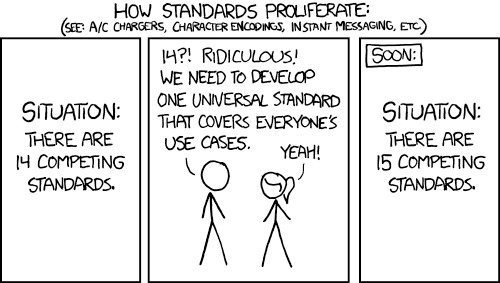this post was submitted on 10 Jul 2023
873 points (97.1% liked)
Programmer Humor
32563 readers
894 users here now
Post funny things about programming here! (Or just rant about your favourite programming language.)
Rules:
- Posts must be relevant to programming, programmers, or computer science.
- No NSFW content.
- Jokes must be in good taste. No hate speech, bigotry, etc.
founded 5 years ago
MODERATORS
you are viewing a single comment's thread
view the rest of the comments
view the rest of the comments

Right, I see your point, thank you for clarifying :)
That being said, unlike the male-to-male example, where I personally don’t understand why the spec prohibits it, I think it’s pretty obvious why consumers want USB-C. The Internet is awash with memes about inserting USB three times, etc.
I think there’s a vast difference between “why is male-male banned? Heck it, I’ll create one as it serves our use case” and “I’m going to negate the only consumer-facing advantage USB-C has for no real reason”. Yes I know C has many other benefits but the common denominator doesn’t care about any of that.
If you have two devices with female USB A ports that both provide power via said ports, connecting them with male-male cable will create a short circut. Best case scenario: a current protecting fuse breaks the circuit. Worst case: both processors on both motherboards are dead. Better not think you can connect two computers with that evil thing. That's why type B connector exists, it's about the same size, but it never connects to a port that provides power.
Aha I see, thank you for explaining :)
A slight word of correction, looked at the pinning again, it won't short circuit them, but one will try to charge the other. It will still be a fire hazard, just not as violent.